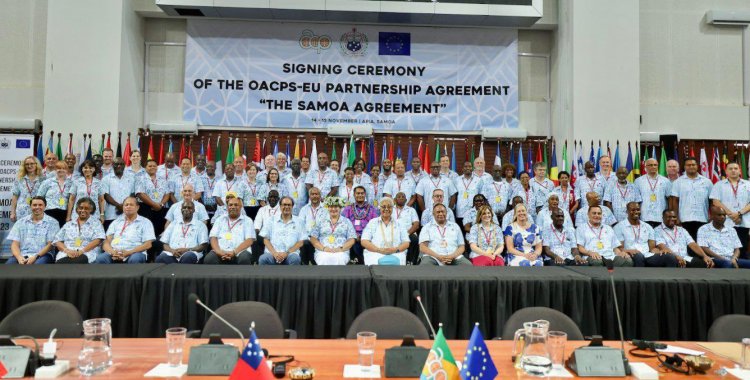The Samoa Agreement, which succeeds the Cotonou Agreement, covers topics such as sustainable development and growth, human rights, peace and security, and serves as a framework for programs and initiatives covered by the Neighborhood, Development Cooperation and International Cooperation Instrument - Global Europe (IVCDCI), with a total financial allocation of around 79.5 billion euros until 2027.
The agreement has provisional application starting on January 1, 2024 and will enter into force after approval by the European Parliament and ratification by the parties, that is, all EU Member States and at least two thirds of the 79 members of the OACPS.
Pilar Cancela Rodríguez, Spanish Secretary of State for International Cooperation, one of the co-signatories of the agreement on behalf of the EU, highlighted "the difficult moment for joint global action and a multilateral approach" in which the text is signed, but considered that the agreement "shows that very large and diverse groups of countries can agree on concrete steps to deepen partnerships" and "build a common future", according to a statement issued by the EU.
Jutta Urpilainen, Commissioner responsible for International Partnerships, main EU negotiator, co-signed the agreement on behalf of the EU and Angolan diplomat George Chikoti, Secretary General of the OEACP, signed the signature that binds the bloc, in a ceremony that included the presence of Josep Borrell, High Representative for Foreign Affairs and Security Policy, and the co-president of the ACP-EU Joint Parliamentary Assembly, the socialist MEP Carlos Zorrinho.
The EU committed to "doing everything in its power to harness the collective power of the four regions" covered by the agreement, recalling that "ambitious investment packages were launched under the Global Gateway in the three regions [Africa, the Caribbean and Pacific]" and that it is "committed to implementing them", in the terms of Urpilainen, cited in the statement.
"At a time when multilateralism is in danger, the fact that so many countries can come together and agree to join forces to face global challenges opens a door to optimism", highlighted, for his part, Josep Borrell.
The 27 EU member states and 79 African, Caribbean and Pacific countries together represent around two billion people and more than half of the seats in the United Nations General Assembly.
The new agreement provides a framework for conduct and priorities to respond to emerging needs and global challenges, such as climate change, ocean governance, migration, health, peace and security.
The agreement includes a common basis, which applies to all parties, combined with three regional protocols and respective institutional architectures for Africa, the Caribbean and the Pacific, focused on the specific needs of each region.







